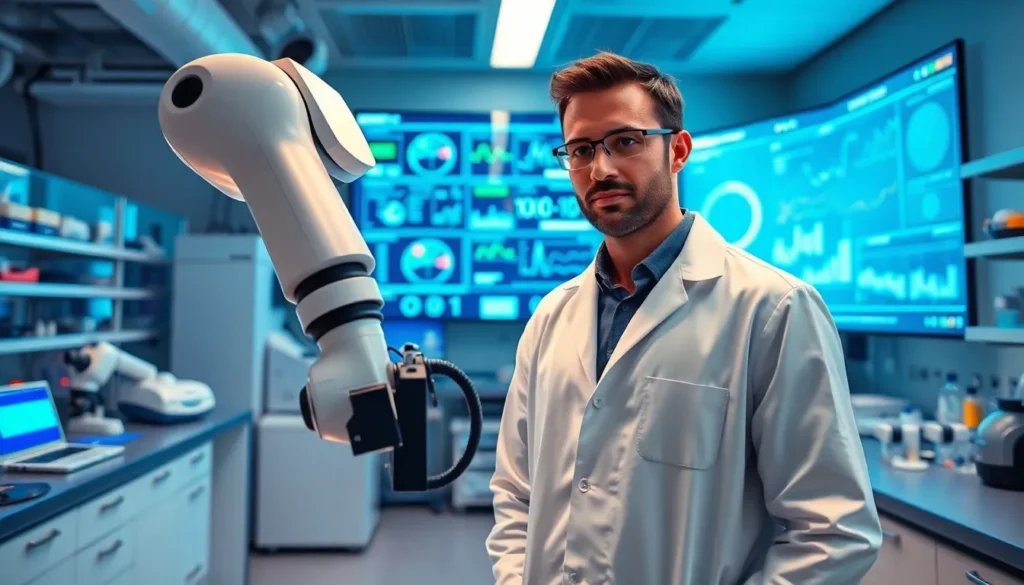Table of Contents
ToggleIn the fast-paced world of life sciences, technology trends often feel like they’re changing faster than a scientist can say “genetic modification.” From Artificial Intelligence enhancing healthcare to automation taking over tedious lab tasks, these innovations promise to redefine the industry. Not to mention, who wouldn’t want a trusty robot sidekick in the laboratory? Grab your lab coat because we’re about to jump into the fascinating technological advancements reshaping life sciences today.
Biotechnology Innovations Driving Change

Automation And Robotics In Laboratories
Automation in laboratories streamlines processes and minimizes errors. Besides, the introduction of robotics to assist scientists means researchers can focus on what they do best, being creative and solving problems.
Laboratory robots can conduct repetitive tasks like pipetting, preparing samples, and running assays, dramatically increasing efficiency while ensuring accuracy. The result? A significant reduction in time and costs associated with research, making medical breakthroughs possible at a faster rate. The future looks bright with labs embracing this robotic revolution.
Digital Health: Telemedicine And Wearable Tech
The pandemic may have accelerated the adoption of telemedicine, but this technology is here to stay. Virtual consultations are saving time and resources for both patients and providers. Imagine being able to consult a specialist miles away without ever leaving your couch.
Wearable tech is also gaining traction, empowering patients to monitor their health in real-time. Devices that track vital signs or even detect irregular heartbeats are not just novelties: they are essential tools in proactive healthcare management.
Data Management And Cloud Computing Solutions
With great data comes great responsibility. Life sciences research generates an astounding amount of data every day, making data management crucial. Enter cloud computing, which offers scalable, flexible solutions for storing and analyzing big data.
Cloud platforms enable researchers to share insights across borders seamlessly, paving the way for international collaborations. Secure data sharing also helps in accelerating clinical trials, ensuring that patients worldwide benefit from cutting-edge treatments swiftly.
Regulatory Challenges And Ethical Considerations
As technology quickly evolves, so do the ethical implications and regulations surrounding it. Regulatory bodies are scrambling to keep up, ensuring that innovations comply with safety standards while fostering innovation.
For example, the use of AI in diagnostics raises questions about data privacy and algorithm biases. These are not mere administrative hurdles: they require ongoing dialogue between innovators and regulators, ensuring that advancements don’t outpace the policies meant to protect individuals and society.



